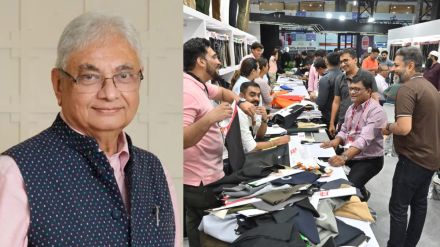The government’s decision last week to withdraw quality control orders (QCOs) on textile raw materials such as polyester fibre and yarn has left out a key input—viscose staple fibre (VSF) and viscose filament yarn (VFY). Industry executives said VSF and VFY are the second-largest raw materials in the man-made fibre (MMF) basket after polyester, and including them could have further lowered production costs.
Grasim Industries, India’s largest producer of VSF and VFY, did not respond to emailed queries. The QCO on VSF, imposed in late March 2023, required products to carry Bureau of Indian Standards (BIS) certification for domestic sale, effectively curbing imports from markets such as China and Indonesia.
Industry sources said that the withdrawal of the QCO imposed on viscose fibre and yarn would make the raw material available at internationally competitive rates. Typically, a QCO is imposed to ensure sub-standard imports are curtailed. But industry executives argue that the move favours domestic manufacturers.
“At a broader level, the QCO withdrawal on at least some textile raw materials is a welcome move. But more work needs to be done in that area to improve competitiveness of the market,” Rahul Mehta, chief mentor, Clothing Manufacturers Association of India (CMAI), said. VSF currently sells for about ₹140 per kg in India, roughly 10–12% higher than imported material from China and Indonesia, according to industry executives. said.
The revocation of QCOs on textile raw materials is expected to help players reduce costs at a time when US’s 50% tariffs on Indian textile exports has hurt local players. While the US has traditionally been the largest market for textile exporters, local players are now looking beyond the latter in the wake of the tariffs.
According to the Global Trade Research Initiative, wider access to foreign suppliers will strengthen India’s competitiveness in the MMF apparel segment. Vietnam and Bangladesh have been able to source inputs more cheaply, while QCOs had restricted access for Indian mills. MMF textiles account for nearly 75% of global fibre consumption, according to industry experts.
The withdrawal of QCO on some textile raw materials follows the recent cut in GST on MMF from 18% to 5%, addressing a long-pending duty inversion and improving the competitiveness of MMF textiles, experts said.
